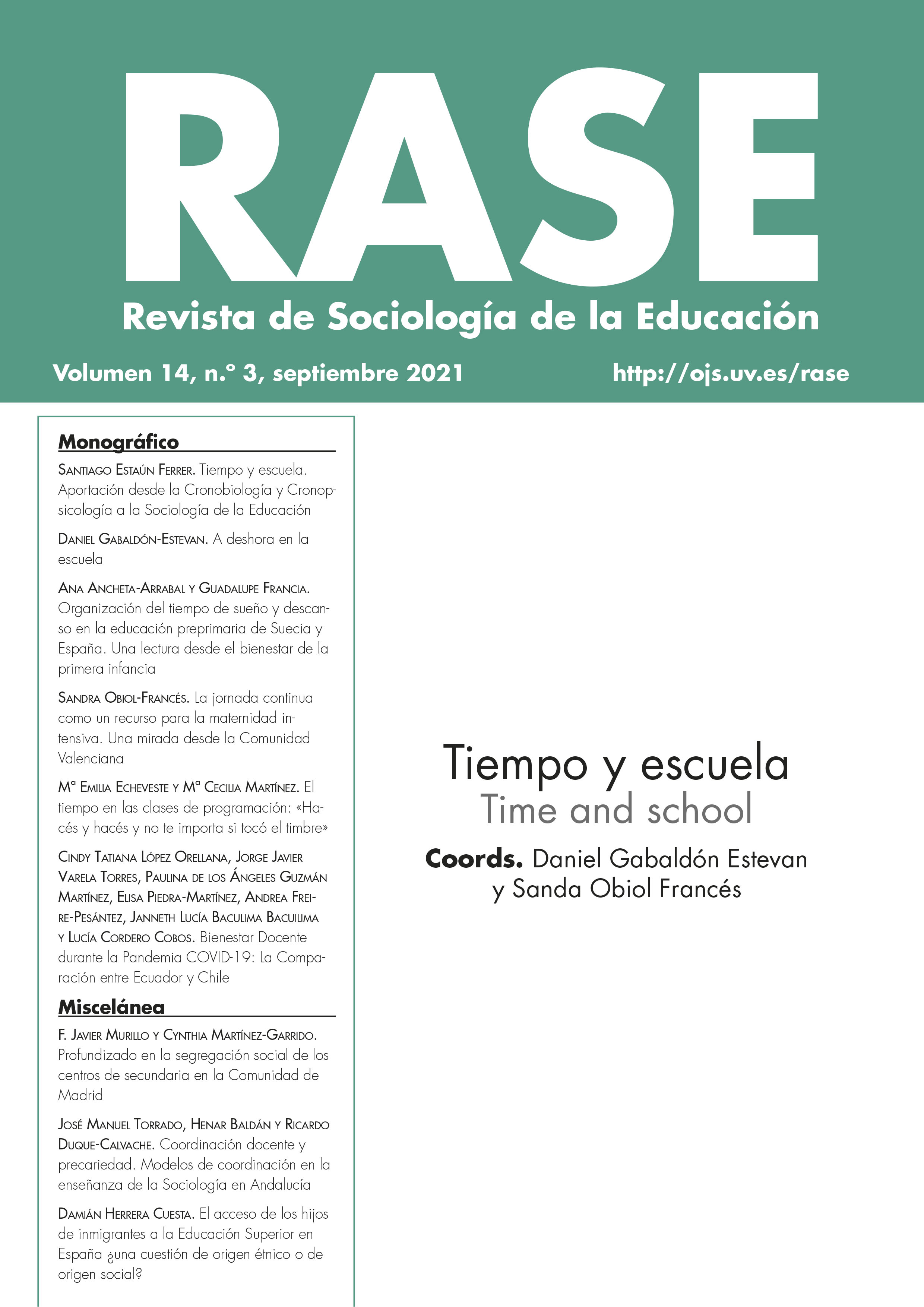Deepen Into the Social Segregation of Secondary Schools in the Community of Madrid
DOI:
https://doi.org/10.7203/RASE.14.3.18149Keywords:
Segregación escolar, Nivel socioeconómico, Educación secundaria, Madrid, Equidad educativa. Abstract
Abstract
Recent studies have shown that school segregation by socioeconomic level in the Community of Madrid is very high, the highest in Spain, and one of the highest in Europe. This research deepens the knowledge of school segregation by socioeconomic level in secondary education with recent data through the achievement of three objectives: a) to estimate its magnitude with various strategies, calculating its profile for 19 minority groups and comparing it with other Communities; b) to study the role of state, private and or state-controlled schools. or concerted schools; and c) to determine the contribution of the bilingualism program to segregation. To do this, the data for Spain is exploited in PISA-2018 and five different and complementary indices are used to estimate social segregation and its decomposition — the Dissimilarity Index, the Gorard Segregation Index, the Square Root Index Hutchens, the Isolation Index and the Socioeconomic Inclusion Index —. The results indicate that the Community of Madrid continues to have very high levels of school segregation that place it at the head of Spain. Furthermore, they verify the strong role that the privatization of education and the bilingual program have in the segregation by socioeconomic level of secondary school students. Thus, it is denounced the situation of educational inequality in the region and the influence of privatization and the bilingualism program, and it is urged that the regional government urgently draw up a Plan to combat school segregation.
 Downloads
Downloads
Downloads
Published
How to Cite
-
Abstract1439
-
PDF (Español)788
Issue
Section
License
![]()
This work is licensed under a Creative Commons Reconocimiento-NoComercial-CompartirIgual 4.0 Internacional.




